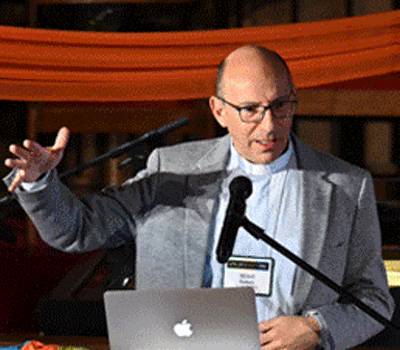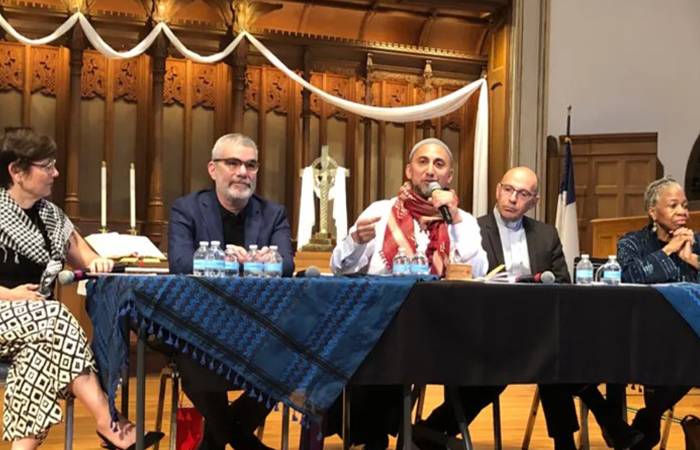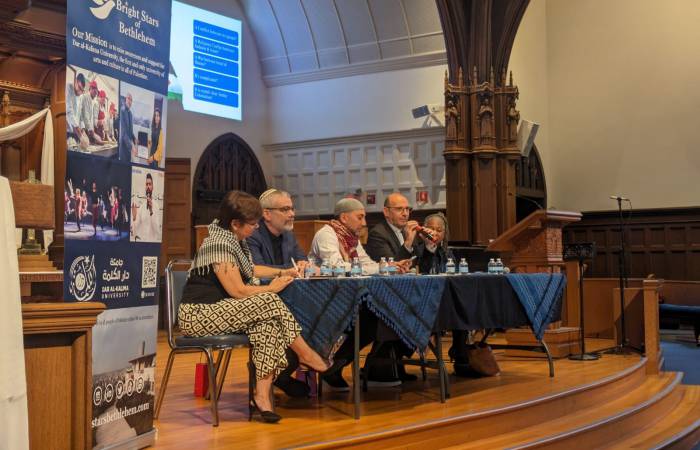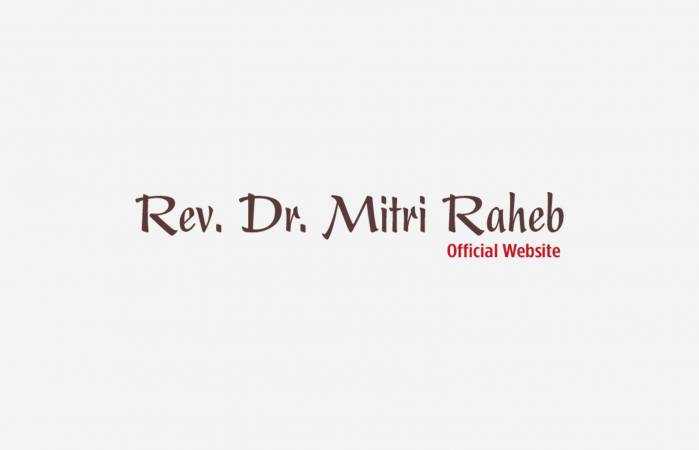Doha International Center for Interfaith Dialogue Organizes a Remote Roundtable in Cooperation with HBKU’s College of Islamic Studies
Under the title "Minorities and the Escalation of Hate Speech in the West: Causes and Solutions"
The Doha International Center for Interfaith Dialogue organized a roundtable discussion on Wednesday, March 3, 2021, in partnership with the College of Islamic Studies (CIS) at Hamad Bin Khalifa University. Titled "Minorities and the Escalation of Hate Speech in the West: Causes and Solutions", the event attracted academics, experts and researchers from Qatar and beyond on an online platform.
The discussion had two sessions, the first of which examined hate speech and its impact on minorities. The second explored the various solutions to confront this discourse, with a focus on interfaith dialogue. Religious dialogue has created an urgent need to confront extremism, fanaticism and intolerance today. It is also necessary in order to give a voice to the truths that religions uphold and their rejection of conflict and collision and all those who call for them.
Prof. Ibrahim Saleh Al-Naimi, Chairman of the Board of Directors of the Doha International Center for Interfaith Dialogue, said: “Ideological conflicts that fuel the flames of hostility, in fact, arise from misunderstandings, prejudices and misconceptions of each other.” He added: “The perverted ideas of violence facing the world today and supported by religious and national hatred have produced extremist models that fight the idea of dialogue and peaceful coexistence and fuel the fires of conflict between civilizations, including the phenomenon of Islamophobia or fear of Islam.”
Prof. Al-Naimi stressed the only way to confront these perverted ideas and phenomena is through dialogue called for by all religions and even positivist philosophies, and international laws, based on the principle of respect for the other, recognition of rights and religious and civil freedom, rejection of conflict and collision and everyone who calls for them, and the creation of a spirit of peace among all human beings regardless of their race or religion, and standing together by universal human values aimed at achieving coexistence, tolerance, cooperation and peace.
.jpg)
He added: “Confronting the phenomenon of Islamophobia and addressing its causes is an urgent matter in light of the escalation of hostilities against Muslim minorities in the West, and the Doha International Center for Interfaith Dialogue is making great efforts to spread the culture of interfaith dialogue, promote the values of tolerance and confront extremism and spread a culture of peace based on Qatar’s global role and its efforts in this context.”
Dr. Josef Waleed Meri, historian at CIS, had earlier opened the discussion after welcoming the speakers. In his opening remarks, he said: “In the past four years the world has witnessed a sharp and unprecedented escalation of hate speech and acts of violence against religious and ethnic minorities. Perhaps among the main reasons for this ignorance is the disintegration of social and political ties, rabid nationalism, and what we are witnessing of the term ‘white supremacy’, as well as the unfortunate practice of some political leaders who, through their populist rhetoric, encourage or incite violence against religious or ethnic minorities.”
Dr. Meri then brought the discussion to the important questions of ‘of what are the reasons behind the escalation of incitement and hate speech against minorities in all societies in general, and against Muslim minorities in the West in particular?’ and ‘What is the role of religion in achieving social cohesion, building more tolerant and inclusive societies, and rediscovering the religious pluralism that exists in this world?’
Prof. Fernand de Varennes, United Nations Special Rapporteur on Minority Issues at the Office of the High Commissioner for Human Rights (United Nations) Geneva, Switzerland, also gave a talk, saying: "Hate speech greatly affects minorities in the West and other regions around the world and such speech may lead to great atrocities, including the commission of acts of genocide.” He stressed that the United Nations places great importance on tackling this phenomenon and has a strategy to confront hate speech, adding: “This is a tsunami and a pandemic affecting the whole world, and it must be addressed.”
He warned of the escalation of hate speech and the spread of hostilities through social networking, and said: “These platforms have become the most powerful propaganda mechanisms in history and are used to spread hate speech and promote extremism, both left and right, and is creating a hostile atmosphere that leads to violence.”
Professor Jocelyn Cesari, University of Birmingham, United Kingdom and Visiting Professor at Harvard University, USA, continued the discussion, explaining: “There are two main reasons for the escalation of hate speech against minorities in Europe, which are the peculiarity of the European secular union, and the perception of European Muslims as only being immigrants and not original citizens.”
The first session was concluded with a speech by Rev. Dr. Mitri Al Raheb, President of Dar Al Kalima University, Palestine, in which he focused on the impact of Christian Zionism on the rise of hate speech, explaining its concept, goals and the emotional dimension among Christians who agree with its objectives.
The second session dealt with ways to enhance coexistence through interfaith dialogue as one of the most important solutions to confront hate speech against minorities. The first speaker was Sheikh Dr. Abdul Hakim Murad, an English academic, theologian and Islamic scholar who was born as Timothy J. Winter and is now a leading proponent of neo-traditionalism at the University of Cambridge in the UK. He said: “Europe has tried addressing hate speech in an institutional way, but unfortunately it is still growing and escalating in many European countries. The problem lies not only in practices against minorities, but also in the existence of something that deepens this disagreement between minorities themselves.”
Prof. Azza Karam also tackled the topic of social media and its political instrumentalization at the cost of using it to highlight events taking place at every level worldwide that are grounded in the goodness of people, humanity tolerance and love for one another. Having 30 years of experience in the field of religion and working with civil organizations, her main concern is the underrepresentation of positive events in the media. She called on the media to redirect its attention to the good work of people and organizations and not to dramatize news on hot topics such as promoting or demoting Trumpism.
Prof. Dr. Fernand de Varennes, the United Nations Special Rapporteur on Minority Issues, spoke again, noting: "The United Nations Secretary-General, António Guterres, has set the confrontation of hate speech, especially against minorities, as a priority, and this is what made him appoint a special UN rapporteur on minority issues.”
Dr. Lena Larsen, Director of the Oslo Alliance on Freedom of Religion or Belief at the Norwegian Center for Human Rights under the University of Oslo, Norway, participated in this session, and focused on defining hate speech and its forms and how to confront it, and promoting freedom of belief, as she emphasized: “It cannot be considered confronting hate speech only through the involvement of religious leaders; it is an integral responsibility of all concerned with the issue, even citizens and minorities themselves.” She indicated that her experience in the Oslo Alliance was based on programs to enhance education and the formulation of curricula that include freedom of belief, non-discrimination and the provision of means of knowledge for children.
The second session concluded with a speech by Dr. Craig Considine, a lecturer in sociology and a specialist in Christian-Islamic relations at Rice University in the United States of America. He explained that hate speech reflects the basis of human character and not religious, national or ethnic identity.
The roundtable witnessed extensive discussions on the two main themes, interspersed with questions from Dr. Josef Meri and the participants.
At the conclusion of the event, the participants called for strengthening the dialogue of religions and cultures, confronting extremist ideas calling for civilized conflict, and reducing the distortions that afflict many of the policies relating to minorities and immigrants in a number of countries in the developed world in recent years.



